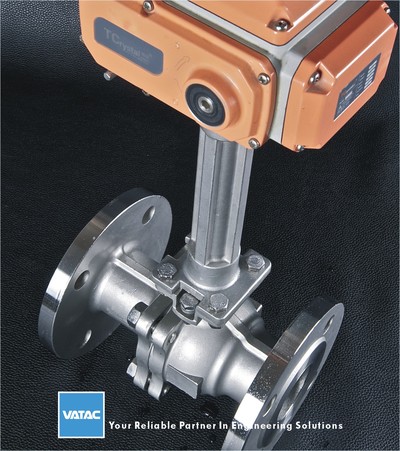 Cryogenic
Valves refer to valves that could be used in low temperature condition, usually
the valves will be treated as Cryogenic Valves when the working temperature
will be lower than -40 Deg C. Cryogenic Valves is often used in Oil
Gas, Air Separation, Natural Gas industrial, etc, the quality determines that
if it could work safety, economic, continuing. With the development of the
modern technology, the Cryogenic Valves demands are more and more increased and
the use ranges are widely enlarged.
Cryogenic
Valves refer to valves that could be used in low temperature condition, usually
the valves will be treated as Cryogenic Valves when the working temperature
will be lower than -40 Deg C. Cryogenic Valves is often used in Oil
Gas, Air Separation, Natural Gas industrial, etc, the quality determines that
if it could work safety, economic, continuing. With the development of the
modern technology, the Cryogenic Valves demands are more and more increased and
the use ranges are widely enlarged.
For
temperature that above -50 deg c, generally do not use extended stem, for
temperature that below -50 deg c, the stem extension length is depending on the
specific temperature. The Cryogenic Valves is mainly for transmitting the low
temperature medium like ethylene, Liquid oxygen and liquid hydrogen , liquefied
natural gas , liquefied petroleum, etc, not only will easily get explosion and inflammable,
but also will get gasify when temperature arises, when gasify, the volume will swell
for hundreds of times.
The
Cryogenic Valve material is very important, if not right, will lead to the body
shell and sealing face leaking inside and outside, the spare parts’
comprehensive mechanical ability, strength and hardness are not qualified, will
cause fracture. If the liquid natural gas leakage, it will explode. So during
the design and manufacture of Liquefied natural gas ( LNG ) valve, the material
is the primer problems. The body and Bonnet could be made of LCB (-46 Deg C),
LC3 (-101 Deg C), CF8 (SS304) (-196 Deg C).
The
Cryogenic Valve with extended stem structure, it aims at reducing the heat that
enter the valve from outside; and also keep sure the packing gland temperature
are above 0 Deg c to keep sure the packing do not get affected; Finally,
it could avoid the stem and the parts
above the bonnet getting frozen or frosting by the packing temperature
lowering.
The
design for cryogenic valves is mainly for the stem extension design – L , the L
is from the bottom of packing to back seat surface, it depends on the materials’
Coefficient of thermal conductivity , thermal conductivity area and surface
coefficient of heat transfer , heat dissipation area, the calculating process
are very complex, generally it is worked out by experimentation.
The Cryogenic Valve working condition are very severe, the medium usually are easily inflammable , with strong permeability, the lowest working temperature could get – 260 Deg C, the max working temperature could get 10 Mpa. In this case, the design and manufacture, inspection for cryogenic valves generally have big difference with the forged ball valves, buried ball valves, metal seated ball valves, etc.